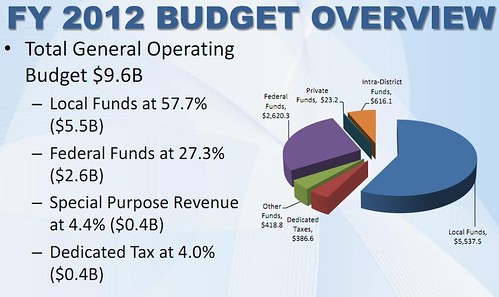Racing to the bottom on gambling
 One of the biggest reasons that states are pursuing casinos and slots is to stay even with other states in their regions. For example, Maryland loses out to West Virginia (Hollywood Casino at Charles Town), Pennsylvania, and New Jersey.
One of the biggest reasons that states are pursuing casinos and slots is to stay even with other states in their regions. For example, Maryland loses out to West Virginia (Hollywood Casino at Charles Town), Pennsylvania, and New Jersey.According to Earl Grinols, author of Gambling in America: Costs and Benefits, for every $1 that comes into the area from a casino, $3 goes out in unforseen economic costs, therefore casinos are not sustainable economic development.
In the DC area, gambling is an issue both in the city, because of the unseemly way that former gaming lobbyist and DC City Councilman Michael Brown got approval for doing it in an underhanded way with no public hearings ("Michael Brown, gambling man" from the Post) and because it is being touted as a solution for the economic problems of the Rosecroft Race Track ("PNGI Makes Pitch for Gaming at Rosecroft" from BloodHorse.com) in Prince George's County ("Don’t bank on Md. casinos," Post), although Post columnist Robert McCartney points out, that not unlike how Anne Arundel Mall is getting slots instead of Laurel Race Track (that's a long story), the likelihood of a casino ending up at National Harbor instead is a strong possibility ("Slots site in Prince George's faces tough road to passage").
Brown is unseemly. The way that Internet gambling is being proposed for DC is pretty dirty, but he touts it as a way to get more revenue for the city, $13 million over 4 years. From the Post story "What will iGaming repeal cost the District?":
On one level, it will cost the city about $13.1 million, which is how much revenue finance officials have estimated the program would bring in through September 2015.
That revenue has already been used to balance the city’s four-year financial plan. (Unlike pretty much every other government, Congress says the District has to balance its spending not just in the current fiscal year, but three years into the future.) So lawmakers have to identify $13.1 million in new revenue or spending cuts to account for the disappearance of “iGaming.” It’s not a lot in the context of a $6 billion-a-year local budget, but it’s not nothing. D.C. Council sources say they’re still working to find the money, so consider that a minor complication as the repeal moves forward.
But at $4 million/year, that's not even a rounding error in DC's annual budget of $9.6 billion. And note that this year, DC now has a $240 million surplus ("District officials announce $240 million budget surplus" from the Post).
Are we so low and so desperate that we have to grab for any dollar, or is it reasonable to say that the city should stand for something, for a vision that doesn't require money grubbing, and profits for gambling interests at any cost?
Labels: electoral politics and influence, gambling-gaming, government oversight, public finance and spending




0 Comments:
Post a Comment
<< Home